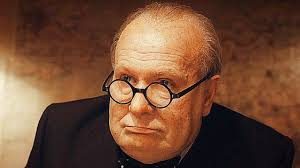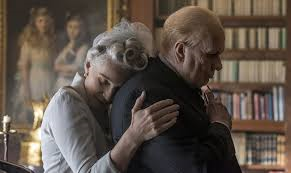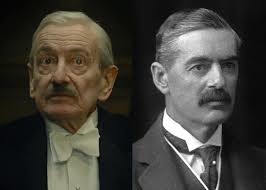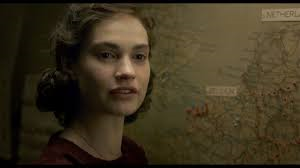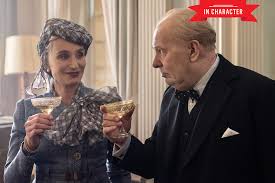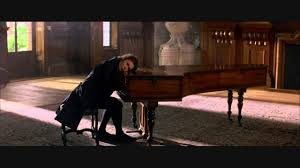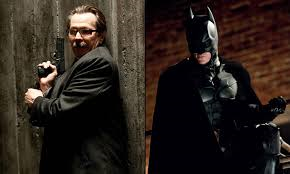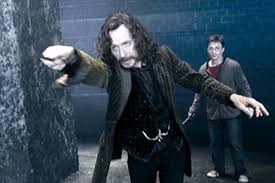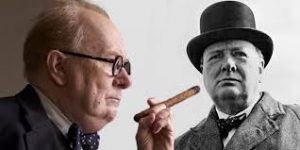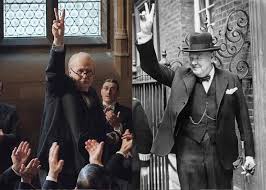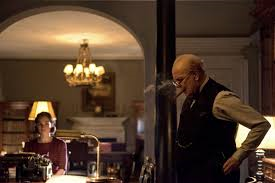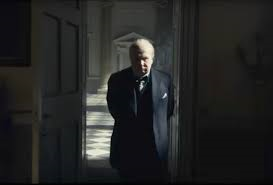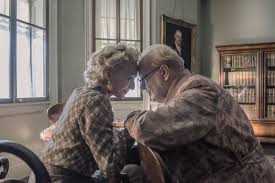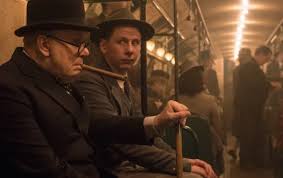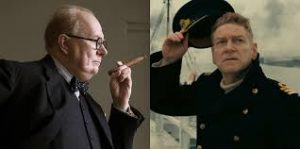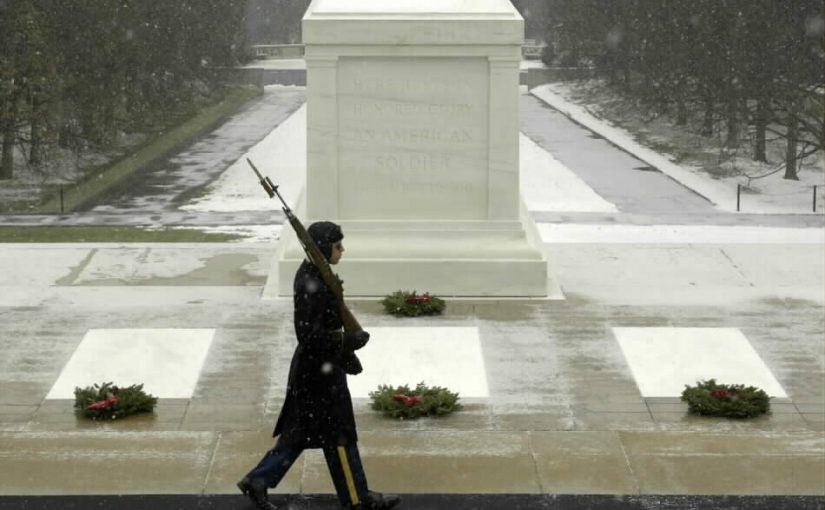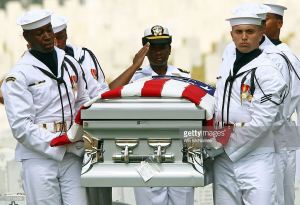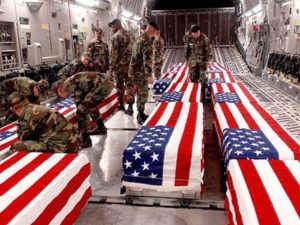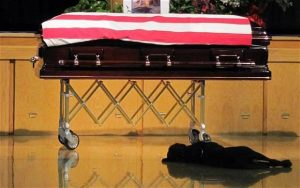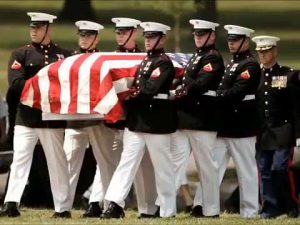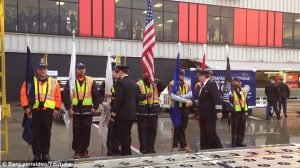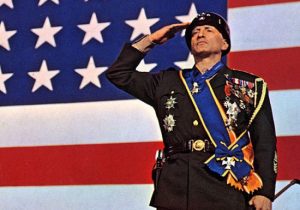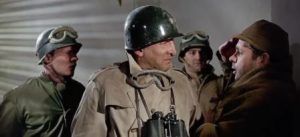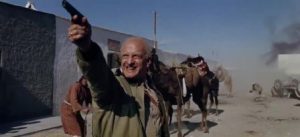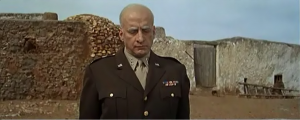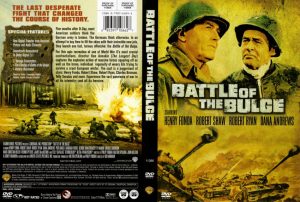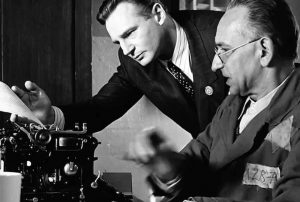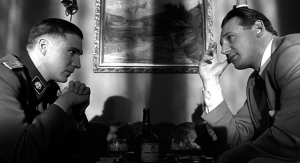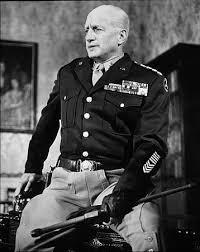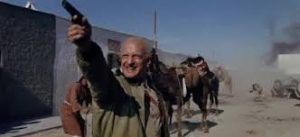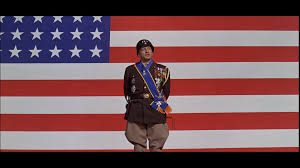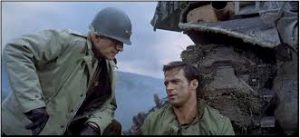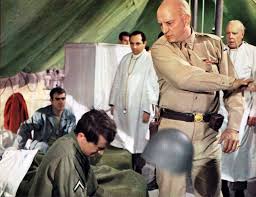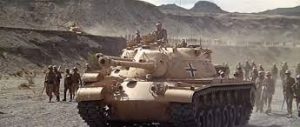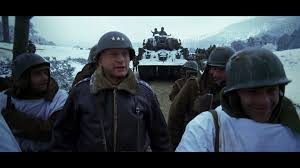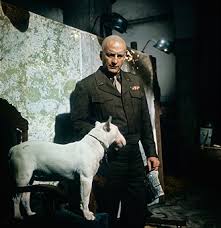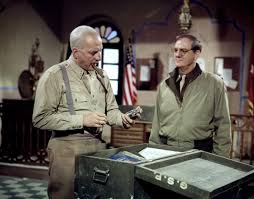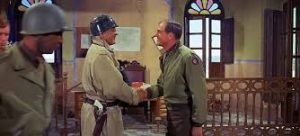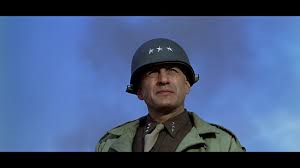SHORT TAKE:
While contemplating my favorite Memorial Day weekend appropriate movies I thought of: my Dad, some movies I didn’t see on anyone else’s list, and some classic favorites, in that order.MEMORIAL DAY – MY DAD, THE PATRIOT
When contemplating Memorial Day and patriotism I do so, unabashedly, through my father’s eyes. Billy Ashton Weisfeld was a radarman on the destroyer Breckenridge during World War II back in the day when radar was so top secret just talking about it outside of their classrooms could land them in Portsmouth Naval Prison. He was very proud of his service and I have always been proud of him. And I see patriotism through the filter of his definitions. He was the one who risked his life for four years. He earned that right.
He taught me to stand during the pledge of allegiance and during the Star Spangled Banner. I remember, sometime during junior high we had a choir teacher who refused to instruct us to stand while we practiced the Star Spangled Banner. I remember being very upset about this and making an impassioned plea on behalf of the men and women who were currently fighting and dying in Vietnam. My arguments fell on deaf eras. (Ironic for a choir teacher.) However, when I approached my parents with my dilemma my Dad took me for an appointment with the principal. I made my case and thereafter we stood for the Star Spangled Banner – whether in performance or practice.
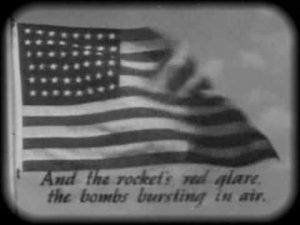
On a more humorous note my Dad and I went to see Poltergeist at the theater in 1982. I don’t know if any of you will remember this but it starts with the TV actually “signing off” for the day as stations were wont to do back then. The end of the programming day was heralded with – The Star Spangled Banner. Not even realizing it was the beginning of the movie – not that it would have made much difference – when the Anthem began, my Dad immediately stood up and I stood with him —– by ourselves —– because it was just the beginning of the movie. I can’t help but chuckle to this day. But, funny as that was, I was and am so proud of him for that. It is one of my favorite memories.
Now, while my Dad, thankfully, did not lose his life during the war – obviously, given these recollections from events which took place in the early ’60’s and ’80’s – he did lose his hearing. His radar station was beneath the big guns which classically blast out during every sea based World War II movie, booming noises rattling your seats even before Extreme Digital was a thing. Though he was fully entitled to disability from the government he refused to apply, saying that his service had been a privilege. Again, I was very proud of my father for his attitude.
I know Memorial Day is to honor those who died fighting for our country and her ideals. My father would have been the first to shy from comparing his efforts to those who never got a chance to offer decades to America, but much like the white martyrs of the Catholic church, my Dad gave his entire life in the service of the ideals of his country by the way he lived and by inculcating those ideals to his children. In return I and my siblings and our spouses have tried to pay it forward to our children.
MOVIES – THE UNSUNG HEROES
There are a plethora of really good patriotic movies. There are a handful on my list which I did not find on anyone else’s.
Now an advisory. There are some well done movies about war which do not deserve to be placed on this list. They are movies which I admit are creative, artistic, fascinating, even literary masterpieces. But they do not deserve a place with these better brethren because they do not respect America, her ideals or the reasons for which we went to war. America fights not to conquer but to free. We are the only major power who has not colonized as victors. Instead of taking Kuwait as a territory we freed it. Instead of laying claim to the areas we won during World War II we asked only, as General Powell notably said, for enough ground to bury our dead. America protects the innocent, feeds the hungry, heals the broken, adopts the homeless, and helps our enemies to get back on their own feet. This philosophy was even immortalized in an affectionate jab of political satire called The Mouse That Roared wherein a small destitute country attacks America just to be defeated so she can receive much needed aid. The movies that do not recognize or respect that distinctly American tradition and morality do not deserve a place with this group any more than does the coward who Patton famously slapped belonged in the military hospital, demoralizing the wounded soldiers. So —- I won’t mention them here, but I suspect you know the ones to which I refer.
This first group of Memorial Day-worthy movies are ones which I did not find on many, if any, prominent list, because of political correctness, age of the film, or plain old quirkiness.
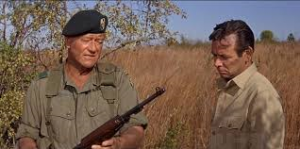
The Green Berets – A classic old John Wayne movie about the Vietnam War – likely the ONLY movie which extolled the virtues of why we went there in the first place, made at a time when we were told the plan was to win. Liberal reporter David Janssen and patriot John Wayne as Green Beret Colonel Kirby face off in an in-country expedition to explore our original mission: to defeat the cancerous brutal totalitarian political structure of Communism then creeping into Southeast Asia, and to provide humanitarian aid to Communism’s indigenous victims.
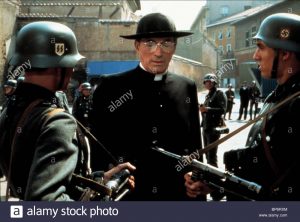
The Scarlet and the Black – Based on the actual account of Msgr. Hugh O’Flaherty, Gregory (To Kill a Mockingbird) Peck portrays this brave priest at the Vatican during World War II who aids in the sequestration and rescue of thousands of Jews under the nose of the reigning Nazis who surround it and infest Italy.
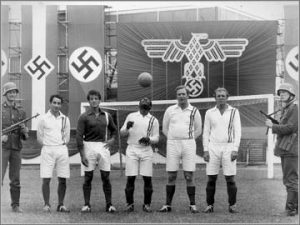 Victory
Victory – another based on a true story – starring Sylvester Stallone, Michael Caine and real life soccer legend Pele, the story is about the soccer game between an international group of POWs and German soldiers. The intent, much like the 1936 Berlin Olympics, was to prove German “superiority” by publicly humiliating the non-German losers. Needless to say, like their Olympic failure to Jesse Owens, it backfired spectacularly.
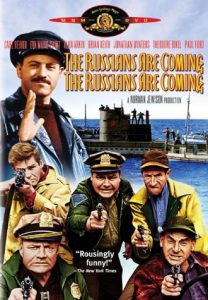
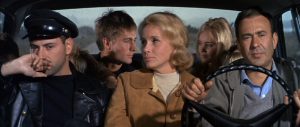 The Russians are Coming, the Russians are Coming
The Russians are Coming, the Russians are Coming – comedy this time. At the height of the Cold War, a Russian submarine Captain, (Theodore Bikel, who later became known as the Klingon Worf’s adoptive human father from
Star Trek: The Next Generation) runs aground off Gloucester Island. The Captain just wanted to get a look at America to satisfy his own completely non-political curiosity and got a little…too…close. Stuck on a sandbar, the Captain and his crew faced American imprisonment as spies on one hand and lethal Russian retribution if suspected of trying to defect on the other. So to prevent an international incident, not to mention his own capture, extradition and likely execution, he sends a team out headed by Alan Arkin as Lt. Rozanov, to find a way to pull the sub free before the submarine is discovered. This hilarious, and warm-hearted comedy also stars Brian Keith, Jonathan Winters and Carl Reiner, along with a plethora of familiar funny faces. I picked this one because it is a demonstration, albeit done in an affectionate parody, of how average American citizen-patriot/soldiers, willing to die to protect America and her ideals, are also willing to extend friendship, show common ground, and offer protection to the helpless when the opportunity arises, even to our enemies.
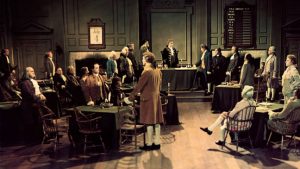
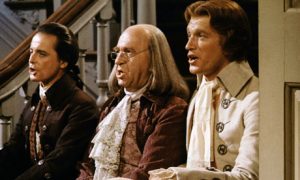 1776
1776 – A musical – WAIT! THAT MAKES THIS ONE LITERALLY A SUNG HERO – or, at least singING ones – if you can believe it, about the signing of the Declaration of Independence. Paraphrasing the last sentence of the Declaration, these 56 men, with hope in the protection of Divine Providence, pledged to support that Declaration with their lives, their fortunes and their sacred honor. Many saw their homes burned, their families abused, their children vanished. Some died in poverty or from wounds or torture. Some lost sons on the battlefield. Thomas Nelson, Jr., (who does not feature in this movie but whose sacrifice deserves mention) just as an example, discovering Cornwallis had encamped in his palatial home, fired the cannon to destroy it himself – and died a bankrupt.
1776 concerns who these Founding Fathers were and why they came together to so devote themselves – only they do it in song.
1776 mostly focuses on John Adams (William Daniels), Thomas Jefferson (Ken Howard) and Benjamin Franklin’s (Howard DeSilva) efforts to acquire unanimous consent on breaking with the British Empire. One of the most charming aspects of this little known film is the conversations the otherwise “obnoxious and disliked” John has with his wife Abigail (Virginia Vestoff). Lifted from the pages of the letters between the real John and Abigail, these interchanges manifest themselves in bittersweet duets wherein they engage in playful banter and loving longing, unable to touch because they are really only conversing by written exchange.
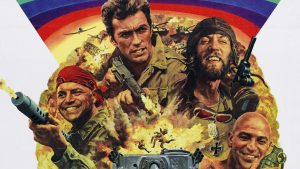
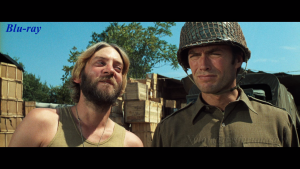
Kelly’s Heroes – OK I hesitated to include this movie, because it rides right up to the line of being one of those anti-war films, BUT I do not think crosses that line. This is one of my favorite movies. A comedy-drama starring Clint (directs everything & cut his teeth on about a million spaghetti westerns) Eastwood, Donald (Hunger Games) Sutherland in one of the quirkiest roles you will ever see him in, Carroll O’Conner, and Don Rickles, about a group of exhausted soldiers near the end of World War II who find out about an enormous cache of German gold in a bank deep behind enemy lines. They plan to steal the gold the Germans have stolen. In the process, a general, played by Carroll O’Conner believing they are a gung-ho troop, decides to honor their apparent courage and follow them right into the heart of the offensive, breaking the German front line.
MOVIE STANDARDS
The ones in this next group are, and deserve to be, on just about everyone’s list of movies that exemplify the best of American courage and ideals in battle.
Patton – Brilliant portrayal by the unequalled George C. Scott of the ultimate patriot and complexity that was American General George S. Patton during the pinnacle achievement of his battlefield career. The movie follows Patton’s astonishing and irreplaceable contribution to winning the European theater during World War II for the Allies as well as the egotism which was almost his undoing. Brilliant military strategist and tank commander, inexhaustible commander who led from the front, never asking his men to go where he would not. Known as Old Blood and Guts he unabashedly prayed and wept openly for wounded soldiers, stood in open battle, fiercely loved and fought for America – he was probably our greatest American soldier.
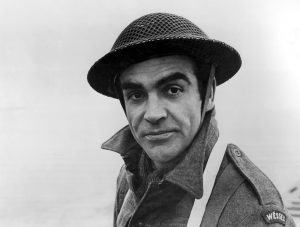
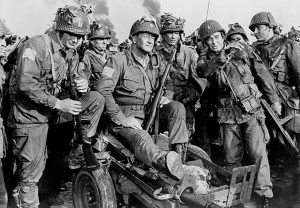
The Longest Day – an ensemble accounting of D-Day starting with the preceding days waiting desperately for a break in the weather – with a cast which included some of the biggest stars of the time, including Sean (James Bond) Connery, Red Buttons, Henry Fonda, Richard (West Side Story) Beymer, George Segall, (THE) John Wayne, Kenneth More, Jeffrey (Captain Pike from the first
Star Trek pilot) Hunter, Robert Wagner, Rod Stieger and Richard Burton!!! and more! If the names don’t ring a bell, look them up in
us.imdb.com and if you are at ALL a classic movie afficionado I guarantee you will recognize at least one of the movies in which they have featured. The movie covers beach landings and straffings, the French resistence, parachute drops, hand to hand combat, a battle inside the town of Sainte-Mère-Église, the Normandy advance. It combines beautiful individual moments as well as grand sweeping action about the turning point of the European portion of the war.
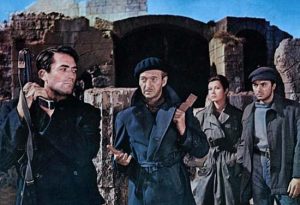
Guns of Navarone – very loosed inspired by the real Battle of Leros during World War II and starring David Niven and (again) Gregory Peck, the story revolves around a covert Allied mission to sabotage massive German battleship-killer guns on the Greek Island of Navarone. Classic heroism.
Battle of the Bulge – based very loosely on the Counteroffensive of Ardennes, it condenses months of preparation and campaigning into a few days. Starring Henry Fonda, Robert (Jaws) Shaw, Telly Savalas & Charles Bronson, it is another classic.
Schindler’s List – Heart breaking, and deeply moving drama about Oscar Schindler, an opportunist, Nazi collaborator and war profiteer who, in one brief shining Divinely inspired period of his life decides to risk his life, manipulate his Nazi connections and spend his life’s fortune saving over 3,000 Jews destined for the gas chamber. While neither American nor a soldier, Schindler risked everything for same ideals for which our American soldiers risk, as well as sabotaged his own military’s bombs, which in turn protected our soldiers.
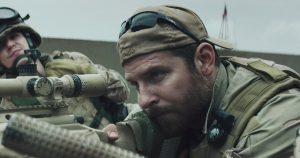
American Sniper – directed by Clint (Kelly’s Heroes) Eastwood, tells the story of the military career of Chris Kyle, the decorated and deadliest American sniper in military history, and his heroic commitment to his fellow soldiers during the Iraqi War. A stand out, not only for telling Kyle’s story, but for the astonishing performance by Bradley (voice of Rocket from Guardians of the Galaxy) Cooper. Cooper transforms himself from a nerdy accountant physique with a hyperactive personality in A-Team to looking like Dwayne Johnson’s little brother with the “gentle giant” demeanor to go with the size. He did, I think, Navy Seal Kyle proud.
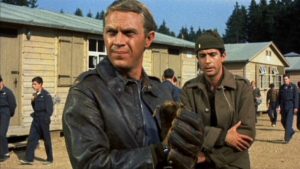
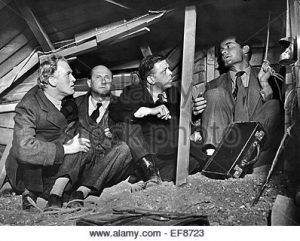
The Great Escape – one of the best war movies ever made. Starring, among others: Steve McQueen, James Coburn, Richard (Jurassic Park) Attenborough, and Charles Bronson. The screenplay is based on the book about the biggest mass escape from any German POW camp ever – Stalag Luft II in Sagan, Poland during World War II. The Germans made the critical mistake of putting the most ingenious serial escapees in a single prison, reasoning they could keep them all more closely guarded. What they did not consider was that together they made a formidable escape army. 600 men planned the tunnel escape of 200 men, none expecting to acquire permanent freedom but primarily to cause confusion and chaos behind enemy lines. These men succeeded in creating the most time expensive, personnel consuming recapture plans the Nazis ever required. This movie is a distinguished and honorable tribute to these internationally mixed heroes.
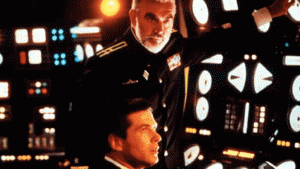
The Hunt for Red October – Cold War era defector Sean Connery sneaks a game changing silent submarine out of Communist Russia. Although not an American soldier, he and his men risked their lives to protect our country, as well as the world, from the brutality of Communist Russia.
There are many more, but let me leave you with the names of others which should definitely be on your bucket list:
Black Hawk Down
Monuments Men
13 Hours
Sole Survivor
Hacksaw Ridge
We Were Soldiers
The Alamo
The Patriot
If you can’t find a really good inspiring movie highlighting patriotism and the American spirit to watch this week – then you’re not really trying.
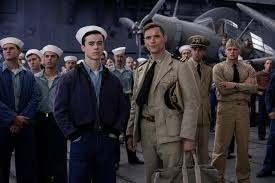 Now imagine HUNDREDS of these types of everymen, volunteers or drafted, trained certainly but no superheroes. But this was real. These men had real families and lives. The pain, the terror, the disfiguring injuries and sudden young deaths, the gut wrenching grief left behind, HAPPENED to people your grandparents knew – or TO your grandparents. Your own family histories, photos, private letters, and stories told at family gatherings are probably rife with tales of loss and sacrifice of young men who left everything behind, including their youth and many their lives, to protect their country and families.
Now imagine HUNDREDS of these types of everymen, volunteers or drafted, trained certainly but no superheroes. But this was real. These men had real families and lives. The pain, the terror, the disfiguring injuries and sudden young deaths, the gut wrenching grief left behind, HAPPENED to people your grandparents knew – or TO your grandparents. Your own family histories, photos, private letters, and stories told at family gatherings are probably rife with tales of loss and sacrifice of young men who left everything behind, including their youth and many their lives, to protect their country and families.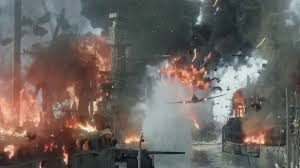 The story of Midway begins on a warm December in Hawaii, where people planning outdoor church services and picnics with their families, are suddenly faced with split-second life changing and life losing decisions when, without warning, planes tore out of the sky shooting at friends and crewmates, ripping them to pieces. Few would have blamed any who froze or ran, but hundreds of these men seized the nearest weapon to shoot back, some hopelessly trying to simply buy time for others to reach safety, while the vessel they were on broke, sank or burned in brutish apocalyptic Hellscapes of screaming and smoke and explosions, with no possibility of escape.
The story of Midway begins on a warm December in Hawaii, where people planning outdoor church services and picnics with their families, are suddenly faced with split-second life changing and life losing decisions when, without warning, planes tore out of the sky shooting at friends and crewmates, ripping them to pieces. Few would have blamed any who froze or ran, but hundreds of these men seized the nearest weapon to shoot back, some hopelessly trying to simply buy time for others to reach safety, while the vessel they were on broke, sank or burned in brutish apocalyptic Hellscapes of screaming and smoke and explosions, with no possibility of escape.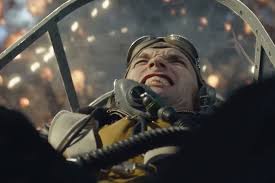 That was Pearl Harbor and the movie Midway examines the fallout from this cataclysmic event and the eponymous Battle for our lives that followed in Pearl’s wake. The Battle of Midway was the determiner whether the war would continue to be fought out in the ocean and around Japan and Europe or whether it would make its way to the shores of continental USA and be prolonged, possibly for decades.
That was Pearl Harbor and the movie Midway examines the fallout from this cataclysmic event and the eponymous Battle for our lives that followed in Pearl’s wake. The Battle of Midway was the determiner whether the war would continue to be fought out in the ocean and around Japan and Europe or whether it would make its way to the shores of continental USA and be prolonged, possibly for decades.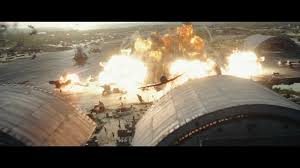 Midway tells the story of the men who, at Pearl and during the Midway Battle, followed Christ’s example, willingly offering up their lives for their fellow countrymen regardless of who they were, knowing only that they were in desperate danger.
Midway tells the story of the men who, at Pearl and during the Midway Battle, followed Christ’s example, willingly offering up their lives for their fellow countrymen regardless of who they were, knowing only that they were in desperate danger.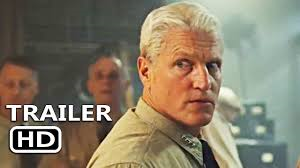 Woody Harrelson (2012, Zombieland, The Glass Castle) is the perfect Charles W. Nimitz,
Woody Harrelson (2012, Zombieland, The Glass Castle) is the perfect Charles W. Nimitz, 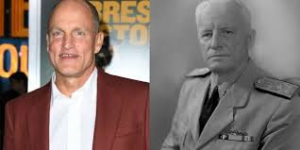 bringing his familiar wary self confidence to this real life seasoned soldier, agonizingly cognizant he is in the fight of his country’s life.
bringing his familiar wary self confidence to this real life seasoned soldier, agonizingly cognizant he is in the fight of his country’s life.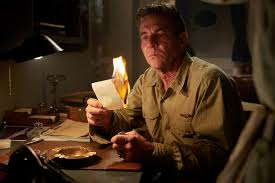 Dennis Quaid (Frequency, A Dog’s Purpose, The Alamo) is the growly fire hydrant shaped tough guy
Dennis Quaid (Frequency, A Dog’s Purpose, The Alamo) is the growly fire hydrant shaped tough guy 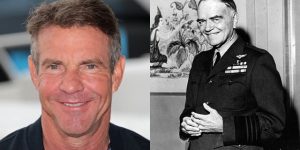 William “Bull” Halsey who leads from the front.
William “Bull” Halsey who leads from the front.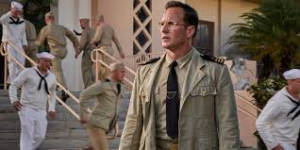 Patrick Wilson, (The Alamo, Phantom of the Opera) whose talents have been grotesquely underused in the fright flick Conjuring franchise, comes into his own as the intelligence officer
Patrick Wilson, (The Alamo, Phantom of the Opera) whose talents have been grotesquely underused in the fright flick Conjuring franchise, comes into his own as the intelligence officer 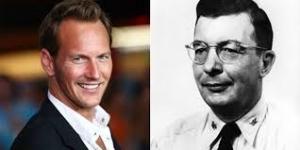 Edwin Layton, whose warnings leading up to Pearl had been ignored and who now was determined to put everything on the line to be sure his country was never under-prepared again.
Edwin Layton, whose warnings leading up to Pearl had been ignored and who now was determined to put everything on the line to be sure his country was never under-prepared again.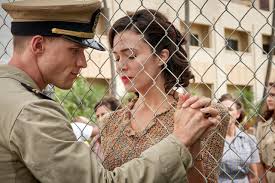 Ed Skrein (Alita: Battle Angel, Deadpool) is the fighter pilot Dick Best,
Ed Skrein (Alita: Battle Angel, Deadpool) is the fighter pilot Dick Best, 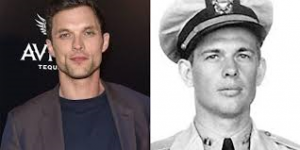 who put his country’s freedom and his fellow patriots before any consideration for his own personal safety.
who put his country’s freedom and his fellow patriots before any consideration for his own personal safety.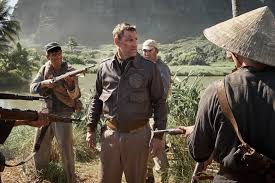 Aaron Eckhart (Batman: Dark Knight, White House Down) is
Aaron Eckhart (Batman: Dark Knight, White House Down) is 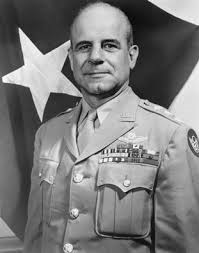 Jimmy Doolittle who led the potential suicide mission into the never-before attacked Tokyo to strike a morale blow for America.
Jimmy Doolittle who led the potential suicide mission into the never-before attacked Tokyo to strike a morale blow for America.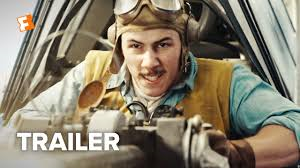 Nick Jonas (Jumanji: Welcome to the Jungle) is
Nick Jonas (Jumanji: Welcome to the Jungle) is 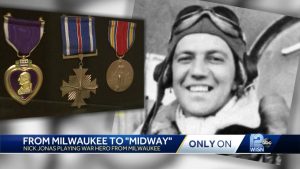 Bruno Gaido, whose calmly philosophical personality and selfless heroism are brought to light on the screen.
Bruno Gaido, whose calmly philosophical personality and selfless heroism are brought to light on the screen.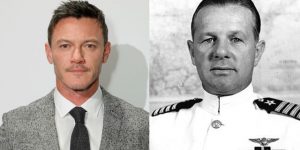 Luke Evans (Hobbit trilogy, steam punk Three Musketeers, live action Beauty and the Beast) portrays Wade McClusky, decorated air group commander whose reasoned instincts and willingness to think outside the box became critical elements in the outcome of the Midway Battle.
Luke Evans (Hobbit trilogy, steam punk Three Musketeers, live action Beauty and the Beast) portrays Wade McClusky, decorated air group commander whose reasoned instincts and willingness to think outside the box became critical elements in the outcome of the Midway Battle.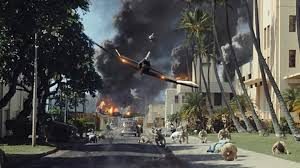 This is historically based on the raw courage of the men who went toe to toe with a ruthless aggressor Empire, with only a handful of planes and the few patched up aircraft carriers which survived the Pearl Harbor sneak attack. These are the men who truly were the Thin Line between the west coast of America and conflagration by the Japanese Empire. The soldiers at Midway were the only thing standing between us and a brutal autocracy for whom the Geneva Convention meant nothing, and which slaughtered a quarter of a million Chinese as retribution for the aid given by a few dozen Chinese to a single American Squadron.
This is historically based on the raw courage of the men who went toe to toe with a ruthless aggressor Empire, with only a handful of planes and the few patched up aircraft carriers which survived the Pearl Harbor sneak attack. These are the men who truly were the Thin Line between the west coast of America and conflagration by the Japanese Empire. The soldiers at Midway were the only thing standing between us and a brutal autocracy for whom the Geneva Convention meant nothing, and which slaughtered a quarter of a million Chinese as retribution for the aid given by a few dozen Chinese to a single American Squadron.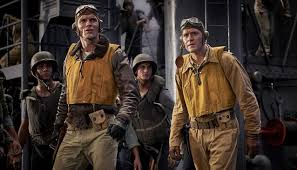 These men, many young and barely out of their teens, stood like the Spartans at Thermopalaye, with their homes almost in sight against an overwhelming Imperial military which would have shown no quarter, no mercy, no diplomacy and no compromise for anything west of the Rocky Mountains. Had the Japanese won at Midway there was a distinct possibility that everything from Seattle to San Diego would have burned, the citizens butchered or enslaved by the merciless occupying Japanese force, as they had done in China. As such, these desperate and disparate courageous men threw themselves against this juggernaut, with photos of their families tucked into the control panel, in planes technologically years behind the Japanese, flying missions which were often tantamount to suicide, with little regard for their own personal safety.
These men, many young and barely out of their teens, stood like the Spartans at Thermopalaye, with their homes almost in sight against an overwhelming Imperial military which would have shown no quarter, no mercy, no diplomacy and no compromise for anything west of the Rocky Mountains. Had the Japanese won at Midway there was a distinct possibility that everything from Seattle to San Diego would have burned, the citizens butchered or enslaved by the merciless occupying Japanese force, as they had done in China. As such, these desperate and disparate courageous men threw themselves against this juggernaut, with photos of their families tucked into the control panel, in planes technologically years behind the Japanese, flying missions which were often tantamount to suicide, with little regard for their own personal safety.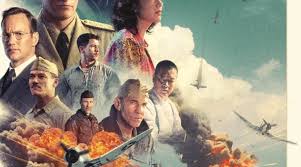

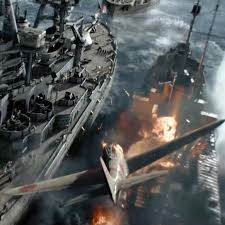
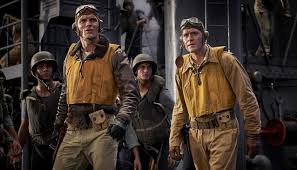


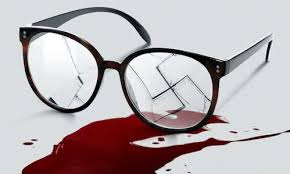
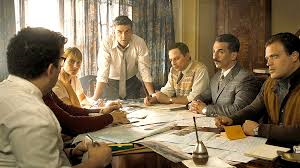
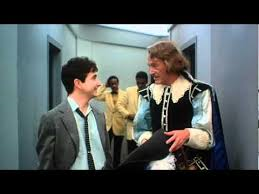
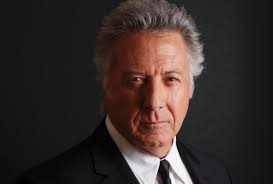
 Dustin Hoffman,
Dustin Hoffman,  Charlize Theron, and
Charlize Theron, and 
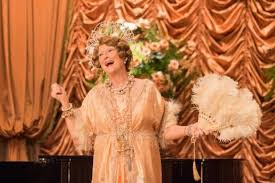 Meryl Streep, all of whom display an exceptional craft along with an unhesitating commitment, which includes not minding making themselves look ugly, should the roll require it.
Meryl Streep, all of whom display an exceptional craft along with an unhesitating commitment, which includes not minding making themselves look ugly, should the roll require it.
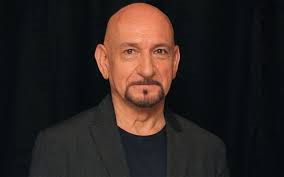 Ben Kingsley falls into this category. Kinglsey is a versatile and mesmerizing actor. From the titular historic
Ben Kingsley falls into this category. Kinglsey is a versatile and mesmerizing actor. From the titular historic 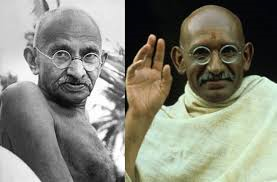 Ghandi to the ridiculous
Ghandi to the ridiculous 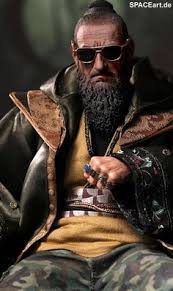 Mandarin in Iron Man 3, from the wise and genlle
Mandarin in Iron Man 3, from the wise and genlle  Itzhak Stern, Schindler's Jewish accountant, in Schindler's List, to the brutal gangster
Itzhak Stern, Schindler's Jewish accountant, in Schindler's List, to the brutal gangster 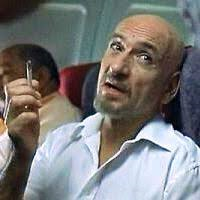 Don Logan in Sexy Beast, Kingsley displays a repertoire which few could master.
Don Logan in Sexy Beast, Kingsley displays a repertoire which few could master.
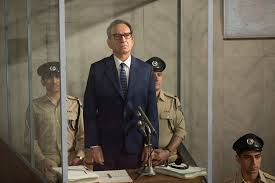
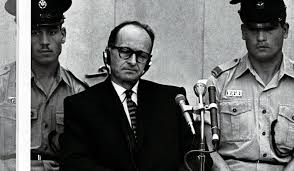 of one of Hitler's most notorious henchmen, the architect of The Final Solution, the genocidal slaughterer of millions of Jewish families,
of one of Hitler's most notorious henchmen, the architect of The Final Solution, the genocidal slaughterer of millions of Jewish families, 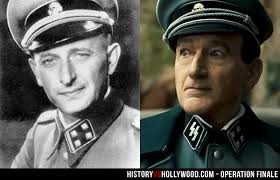 Adolph Eichmann. Eichmann is the person about whom the expression "the banality of evil" Hannah Arendt, reporting on Eichmann's trial, referred. Arendt recognized these horrific deeds were performed not out of sadism or any evil intent,
Adolph Eichmann. Eichmann is the person about whom the expression "the banality of evil" Hannah Arendt, reporting on Eichmann's trial, referred. Arendt recognized these horrific deeds were performed not out of sadism or any evil intent, 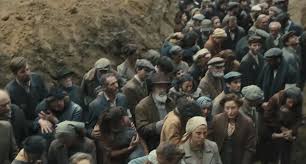
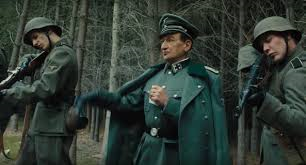 but by a merely bureaucratic routine functionary going through motions which he thought would advance his career, without any thought or care for the consequences of his actions. To my mind, this is perhaps more horrifying than a serial killer who gets his jollies from inflicting pain and suffering. A serial killer can be temporarily satiated. A Nazi bureaucrat could continue daily for decades without a thought or need to slow.
but by a merely bureaucratic routine functionary going through motions which he thought would advance his career, without any thought or care for the consequences of his actions. To my mind, this is perhaps more horrifying than a serial killer who gets his jollies from inflicting pain and suffering. A serial killer can be temporarily satiated. A Nazi bureaucrat could continue daily for decades without a thought or need to slow.
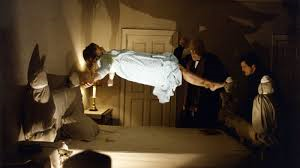



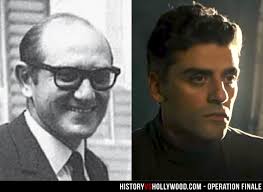 Oscar Isaac portrays the real life Peter Malkin, a member of the Mossad and survivor of the Nazi genocide, instrumental to this historic Israeli organized clandestine operation.
Oscar Isaac portrays the real life Peter Malkin, a member of the Mossad and survivor of the Nazi genocide, instrumental to this historic Israeli organized clandestine operation. 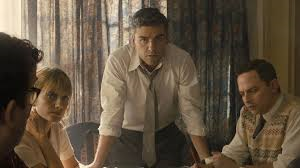 Presented as historic drama, Operation Finale begins with one of Malkin's failures and proceeds primarily through his point of view as ephemerally loose threads are found and woven into the net which unearths this man who committed some of the most evil acts in all of mankind's history – which, given mankind's propensity for evil acts is saying something.
Presented as historic drama, Operation Finale begins with one of Malkin's failures and proceeds primarily through his point of view as ephemerally loose threads are found and woven into the net which unearths this man who committed some of the most evil acts in all of mankind's history – which, given mankind's propensity for evil acts is saying something.
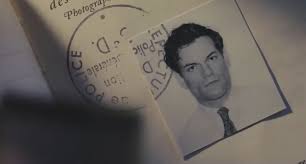 men and women
men and women 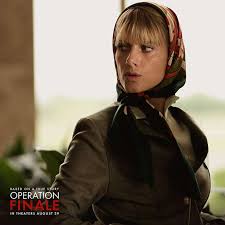 who risked capture, torture and death
who risked capture, torture and death 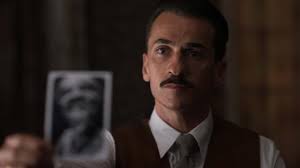 themselves in Argentina, a country which happily welcomed notorious high ranking Nazis
themselves in Argentina, a country which happily welcomed notorious high ranking Nazis 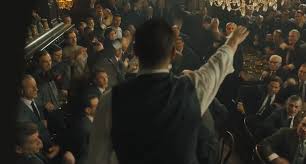 and was still rife with open anti-Semitism.
and was still rife with open anti-Semitism.
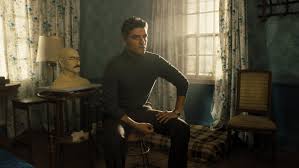 As time begins to run out and the increasingly frustrated and tightly strung agents, some last remaining members of their families, endure proximity to their former tormentor, now prisoner, Malkin takes it upon himself to get inside of Eichmann's head. We, and they, start to wonder if one side or the other – Eichmann or the Mossad members – is succumbing to what would later be known as Stockholm Syndrome.
As time begins to run out and the increasingly frustrated and tightly strung agents, some last remaining members of their families, endure proximity to their former tormentor, now prisoner, Malkin takes it upon himself to get inside of Eichmann's head. We, and they, start to wonder if one side or the other – Eichmann or the Mossad members – is succumbing to what would later be known as Stockholm Syndrome.

